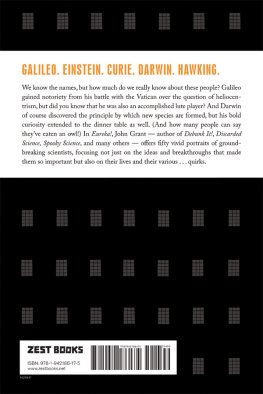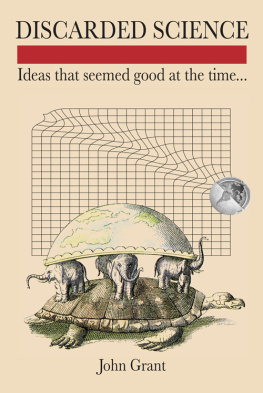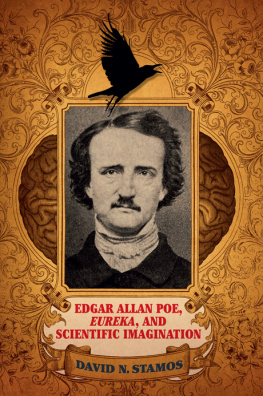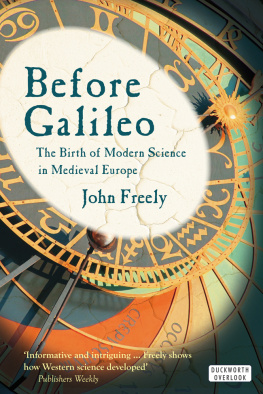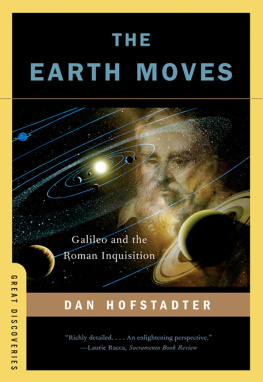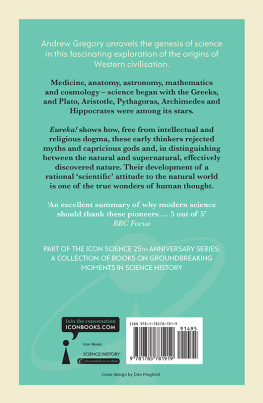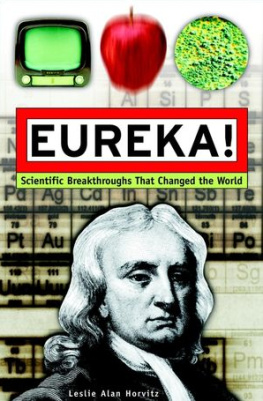Copyright 2016 John Grant | All rights reserved. No part of this publication may be reproduced or used in any form or by any meansgraphic, electronic, or mechanical, including photocopying, recording, or information storage and retrieval systemswithout the written permission of the publisher. | Young Adult Nonfiction / Biography & Autobiography / Science & Technology | ISBN: 978-1-942186-17-5
INTRODUCTION
O nce upon a timenot so very long ago, reallythe world was flat and at the center of all things. The Sun and the Moon and the stars went round it, as did, in a more complicated way, the planets. All the treasures of the world had been set in place to serve human beings, more particularly male human beings, who were the pinnacle of creation. All was for the best in this best of all possible worlds.
Except that, of course, it wasnt.
Weve come a long way since those days, and especially in the past few centuries. The universe that seemed so small and stable has been revealed in its vast and dynamic magnificence, with the promise that it still has plenty more secrets waiting for us. But its not just the universe we know so much more about; its also ourselves. We have a far clearer idea of how we function, what makes us sick, what can cure us, and how were a part of the enormously complicated web of relationships that constitutes the environment in which we live. We recognize, too, problems our ancestors could never have dreamed of.
What has brought us out of the dark cave of ignorance into the sunshine of knowledge is science.
Technically speaking, science didnt really exist as such until the early seventeenth century, when people like Francis BACON began to systematize the best ways in which human reason could be used to acquire knowledge. We now refer to those various schemes collectively as the Scientific Method. But the scientific impulse dates back thousands of years before that, as people did their best to explain what was going on around them. Even though a lot of their efforts were misguided, it seems reasonable to refer to them as scientists.
Most of the names of those scientists have been forgotten, as is the way of things, or at most survive as footnotes in scholarly histories. In fact, one of the curiosities of the story of science is how often the work of scientists who were enormously prestigious in their own day has proven later to have had little or no lasting effect. The converse is true, too. There are plenty of examples of people whose ideas have been dismissed at the time but whom we now recognize as true groundbreakersIgnaz SEMMELWEIS is one, Alfred WEGENER another.
Theres a different reason, sadly, why some peoples ideas were ignored. Science, as a human activity, is as vulnerable to social biases as any other part of society. Youll notice that men significantly outnumber women as the subjects of the essays in this book. This is because, tragically, until very recentlyand, many would argue, stillboth women and predominantly men have assumed the sciences arent a fit subject for the gentler sex. A striking example of a female scientist wrongfully ignored is milie DU CHTELET, who for two and a half centuries was widely regarded as just some mistress of Voltaire whod done a translation job for him. Rosalind FRANKLIN was depicted as a mere hanger-on in the endeavor to decipher the structure of DNAand as a ferocious harpy, too, just to make her seem even more peripheral.
So how do you decide whether or not a particular scientist has shaped history? Its as easy as deciding whether or not a rock band is any goodin other words, while you can bring a fair number of objective criteria to the decision (they play in tune, for example), in the end it becomes a matter of personal judgment. Although I think everyone would agree on such figures as COPERNICUS, GALILEO, NEWTON, MENDEL, DARWIN, CURIE, and, of course, EINSTEIN as history-shapers, Im only too well aware that some of my fifty choices for inclusion and omission here might startle a few readers. a va.
All of the people Ive included have helped us better understand our universe. Some have done so in very obvious ways, some far more subtly. If you removed any of them from the story of science, itd be a different story. 
PYTHAGORAS OF SAMOS
(ca. 570ca. 495 BCE?)
The semi-legendary Mediterranean mystic who believed music and numbers underpinned the universe.
N obodys entirely sure Pythagoras actually existed, since there are no surviving contemporary accounts of him, let alone any of his writings. It probably makes sense to think in terms of not so much an individual as a school of thought. In fact, some believe the Pythagoreans might have invented their spiritual and philosophical leader after the factcreating a myth of origin, as it werein order to bolster their own street cred. It wouldnt be the first or the last time a cult has done this sort of thing.
For the sake of convenience, though, well assume here that Pythagoras did indeed exist and that later Greek philosophers were right about the scanty details they recorded of his life.
Born on the island of Samos in the eastern Aegean Sea, Pythagoras may have traveled widely as a young man throughout Egypt and Babylon, learning the art of mathematics along the way. On return to his home island, he found it under the reign of a cruel tyrant, Polycrates. Soon he was forced to leave Samos as a political refugee, and settled in Croton, a Greek city in the south of Italy, where he set up a community devoted to philosophy, religion, and politics. At first this community was welcomed by the local powers, but after twenty years or so, relations soured, and sometime around 500 BCE it suffered a devastating attack. Pythagoras fled again, this time to Metapontum, also in southern Italy, where he spent the rest of his life.
We neednt spend too long on the straightforwardly religious aspects of the Pythagorean cult. Either Pythagoras or his followers thought he was semi-divine and not only had had a succession of past lives but could remember them; part of his wisdom arose because he had learning and experience from not just one but several existences.
Exercise and physical fitness were important components of the Pythagorean way of life. There were also some strange prohibitions his followers had to observe: They werent allowed to eat beans, or to pick up anything that had fallen or been dropped, or to walk on a highway, or to use an iron poker for the fire. Equally important was that, when they got up in the morning, they should roll up their bedclothes so as to get rid of the impression their body had left. Failure to obey these rules could result in severe punishment.
The Pythagoreans thought music was the most easily accessible aspect of the harmony that underpinned the universe. This meant that, the more you knew about music, the closer you might become to the divine ideal.
It was apparent to them that, in a certain sense, music was made up of numbers. If you halve the length of a vibrating string, the note it now sounds is an octave higher than the original. In fact, all the harmonic intervals in music can be described in terms of fairly simple numerical relationships involving just the numbers 1, 2, 3, and 4. To the mystically inclined Pythagoreans, this was a clear sign that they were on the right track, because those four numbers add up to 10, a number thats sacred because its the basis of the counting system.

